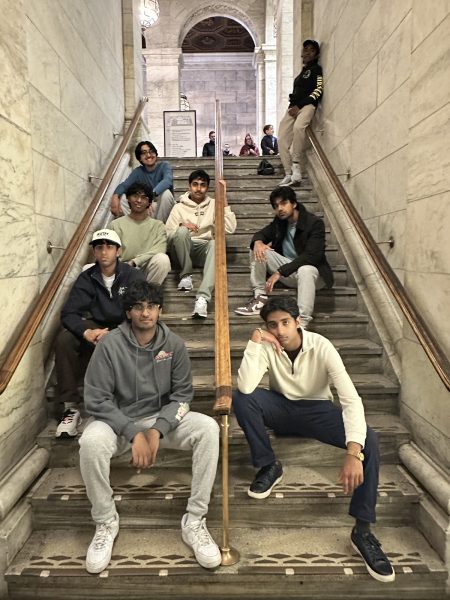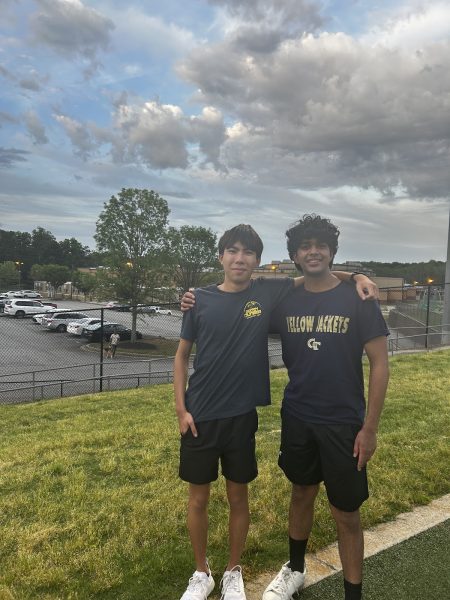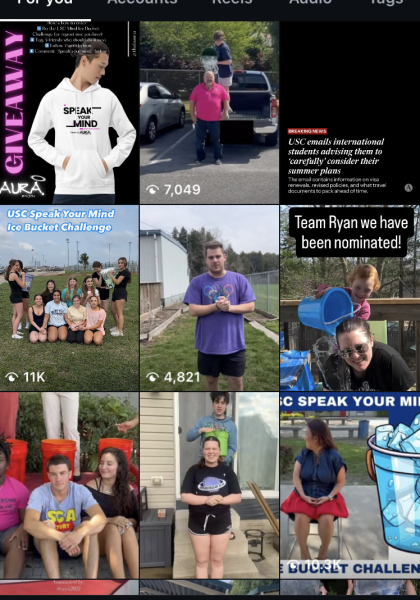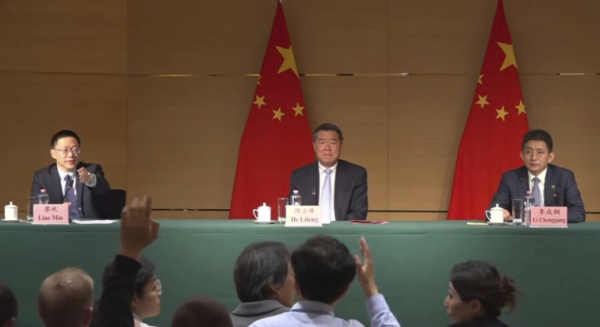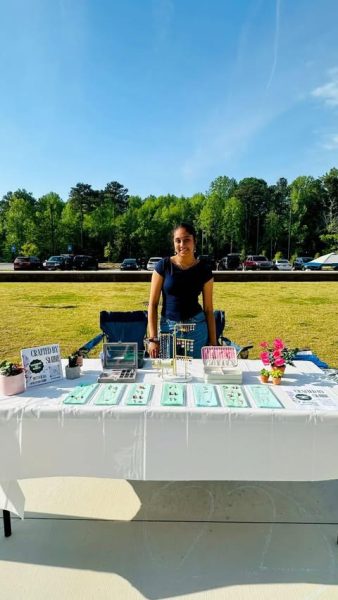Moving into the New Normal

Enactment of a student cheating on an assessment during COVID. Picture taken by Sudarshan Prasanna on 5/19/2023.
The past school year has been characterized by a new post-COVID reality – one with the absence of masks and schoolwide outbreaks but certainly not one that can be deemed ‘back to normal’. In fact, just one year prior, we saw school resume face-to-face, but this came with constant reminders of the pandemic raging around us, whether it be the countless faces covered in masks, the empty seats left behind by those with the virus or even the schoolwide outbreaks that led to closures and virtual days. These reminders are long gone, but the fact remains that the impacts of COVID-19 still linger in the walls of Lambert High School. Behind the scenes of crowded hallways and smiling, uncovered faces are the untold impacts of the pandemic on student learning, issues that are at risk of being forgotten as we move into the fabric of the
“new normal.” While many may be quick to dismiss this year as the first chapter in this new status quo of student life, it is important to address these issues with just as much importance in order to ensure that we can truly move forward into a pandemic-free future.
For one, the pandemic has left many students behind track with regards to their learning, with a year of virtual school impacting their understanding of foundational material that is necessary for success at the high school level. Many core classes are set up in a fashion that builds on the content learned in the previous year’s course, and without a thorough grasp of these recurring concepts, it becomes much harder for students to make up for this gap in expected understanding.
“COVID has impacted our education a lot, especially in terms of our work ethic and a lot of the material we were supposed to learn during 8th grade for us sophomores or even early high school for a lot of the upperclassmen,” Lambert sophomore Neal Karani said.
Clearly, it is evident that the impacts of COVID on student learning patterns and the resulting knowledge needed to succeed in many high school courses have led to a steeper learning curve for many students. This is increasingly true for AP and other higher-level classes, with courses such as AP Calculus BC needing not only an understanding of Precalculus from the previous year but even Algebra and foundational concepts from other prior subjects. As a result, students find themselves greatly struggling to balance both learning the current course material and bridging existing learning gaps, which is an issue that needs to be addressed in order to ensure all students can succeed at the high school level.
While virtual learning itself has posed a foundational problem to students, it is also important to note that cheating and an overall lack of effort during COVID-affected schooling has played a major role in setting students back. Many took the easy way out at a time when online cheating measures were present but relatively simple to bypass for students, and this caused obvious issues when school opened up face-to-face. As such, many students are still feeling the impact of cheating over virtual school in their classes this year.
“Last year, at the beginning of school during the [Algebra Review] test in Precalculus, most students failed because they all cheated online,” Lambert sophomore Samanyu Badam explained. “This translates into their Calc class this year, because they don’t actually have a grasp over the same basic concepts…this hinders their ability to succeed.”
The lack of integrity and effort in learning over virtual school as well as a lack of accountability keeping students from doing so has further contributed to the steep learning curve that is still affecting students. Cheating over virtual school may have served its purpose for one COVID-marred year, but it has clearly produced repercussions for student learning that have extended much farther.
While this issue is clearly deep-rooted, it is not impossible to fix it with the right efforts. The pandemic may be all but gone, but with its effects still lingering, it is important to take them into consideration with regards to issues like scheduling, course and pathway arrangements, and high school orientation. For instance, while Lambert is known for its wide selection of AP classes and the large number of students who excel in these courses, many students try to reach the high standards set by those of past years and overload themselves with such difficult coursework. This has placed huge stress on these students both academically and mentally, and with the learning gap and mental health problems caused by the pandemic, it may be a good idea to place limits on the amount of AP classes a single student can take. Additionally, in order to better prepare COVID-affected students for the years ahead, the school could conduct more orientation programs, outreach events and even tours so that students can get a greater feel of what the high school environment will be like. This will also aid students of all grade levels in the expectations and norms around academics and learning in high school. By conducting such events, students will have a better idea of how they can plan and effectively manage their learning and high school experience, which will help in preventing overload and in turn mitigate cheating issues and excessive learning curves caused by the pandemic. After all, by giving students a chance to adapt to the new future after COVID and removing expectations of years prior, they are better prepared to tackle the high school experience wherever they are in their four years. The post-pandemic era at Lambert has brought a new normal for the student body, and while the lingering effects of COVID may still affect a vast majority of them, the right efforts can help make this change as smooth as possible.
Your donation will help support The Lambert Post, Lambert High Schools student-run newspaper! Your contribution will allow us to purchase equipment and cover website hosting costs.



